D J 8 W X
lf site
I. Two LF aerials in one area
II. Two receivers in one transceiver
III. Two displays on one screen
I. I
use a 16m high Vertical with an elevated coil. The Vertical is toploaded with
240m wire. The second aerial in use is a "quasi Beverage"
loop (non directional) 8m high - 11,30m long - 2,5m above soil - four
parallel windings (pitch14,5cm) of 3mm insulated Litz wire (155m total
length).
II. I
modified the FT1000MP. Now the Sub Receiver is a stand alone part like the Main
Receiver. Each has its own aerial and its own audio output (stereo left and
stereo right).
III.
Thanks to DL4YHF`s Audio Signal Analyser "Spectrum Lab" I
managed to see both receiver outputs on one and the same screen by driving
"Spec Lab" in Split mode. The level of the receiving amplification
has of cours been equalized.
----------------------------------------------------------------------------------------------------------------
I made the following
screenshots during the observation of the TransAtlantic window 137,7kHz.
The upper display shows the analysed audio output of the Main Receiver
connected to the Vertical and the lower that of the Sub Receiver
connected to the "Beverage Loop"
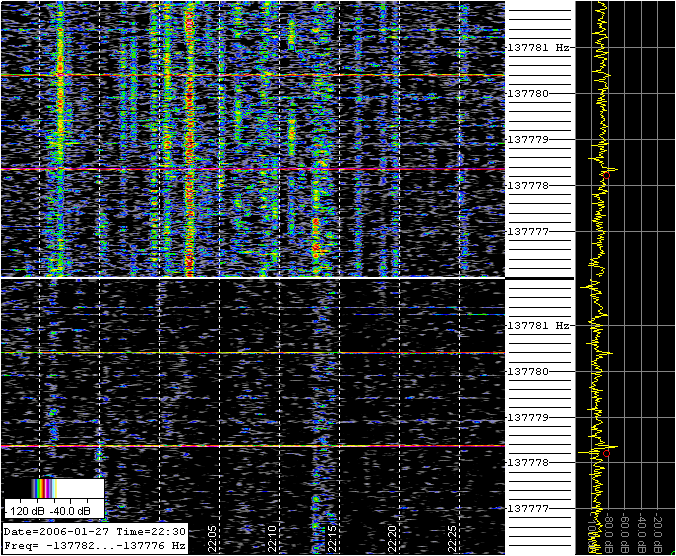
Heavy QRN coming in via
the Vertical and nearly zero QRN via the "Beverage Loop".
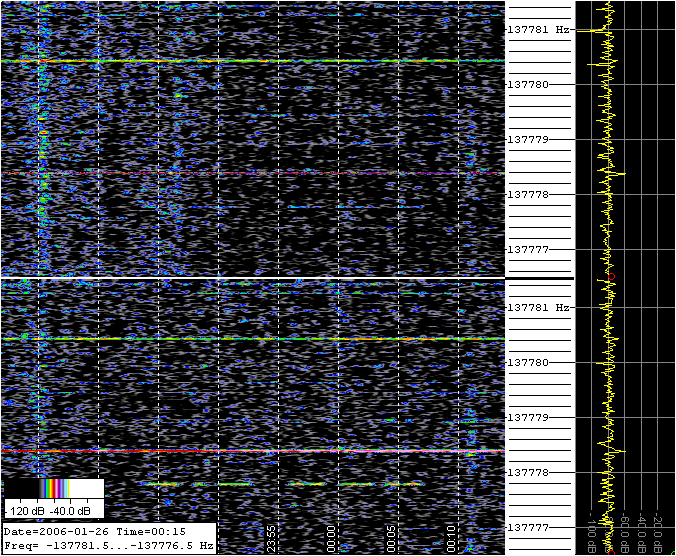
The "Beverage Loop" delivers strong signs transmitted by Dexter (WD2 )XKO. Does the reader see this signs on the upper part of the screen? Ie. they are almost invisible.
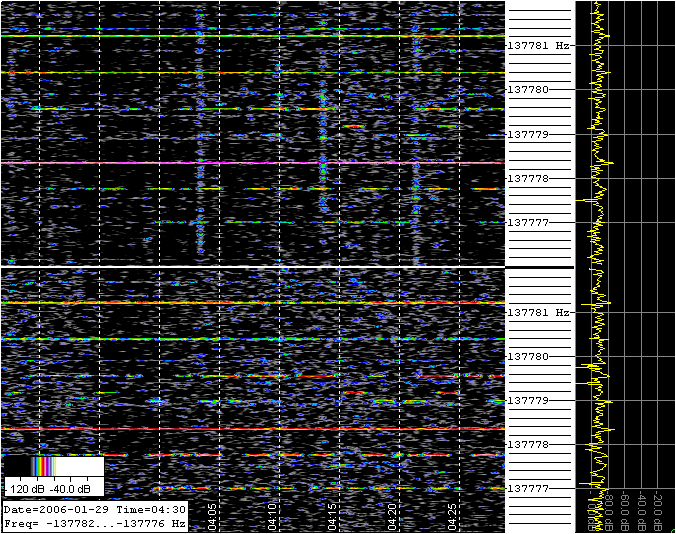
Lots and lots of TA
signs.

Captured in Quasi Aerial
Diversity mode ie. the two audio paths of the receivers have been
equalized and added in the audio output stage of the FT1000MP . I know, aerial
diversity is something else.
Seeing those pics my
idea receiving the TA signs (or others) in the quasi aerial diversity
mode only has been dropped.
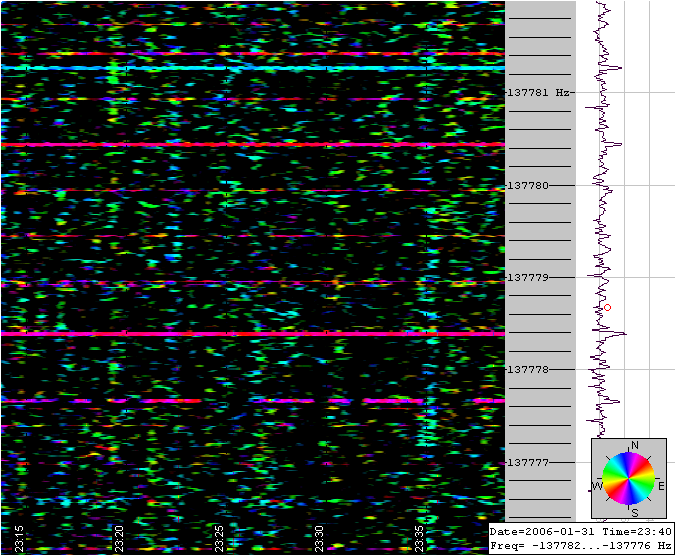
XKO very early on screen
those EU nights. SpecLab in RDF mode, colour settings by Markus/DF6NM.
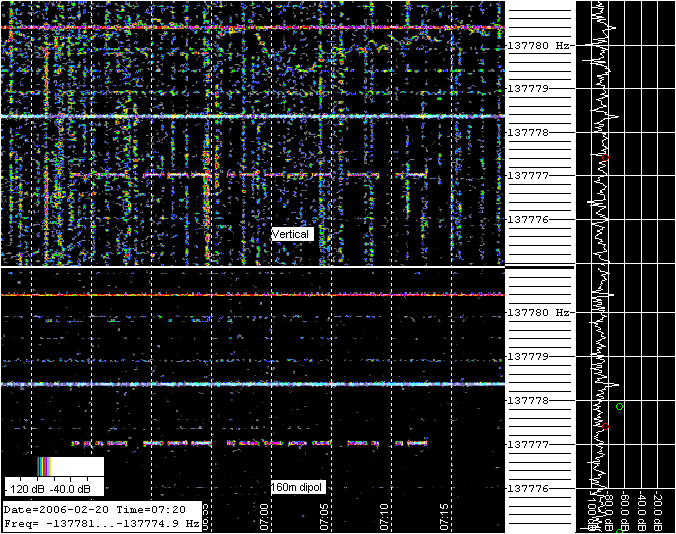
Receiving VO1NA via the Vertical Aerial tuned to 137,7kHz and via the
160m full sized Dipol.
back
to